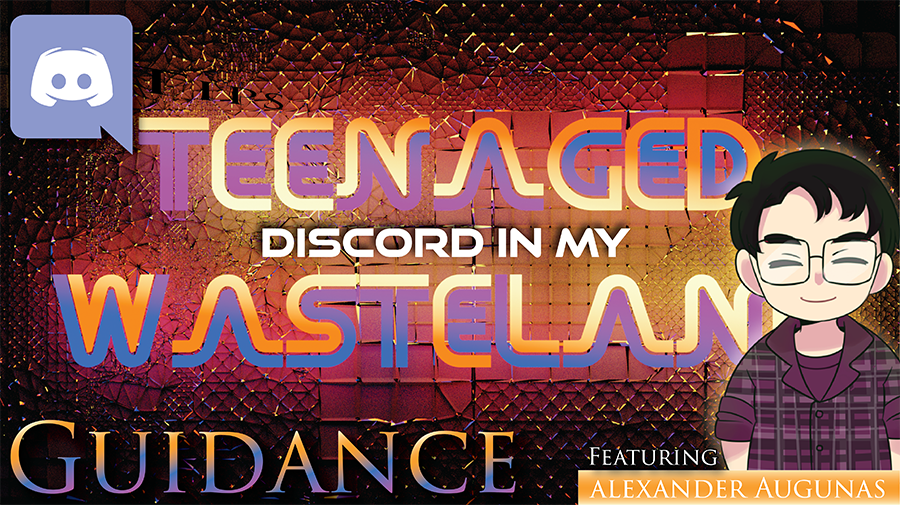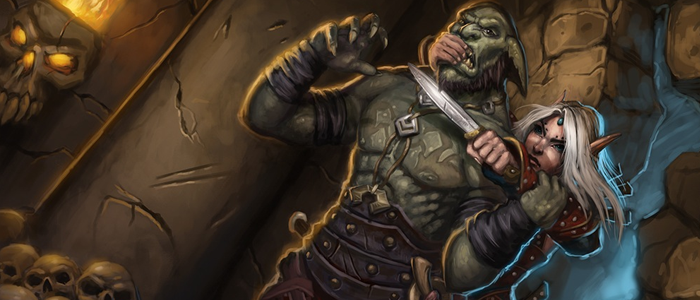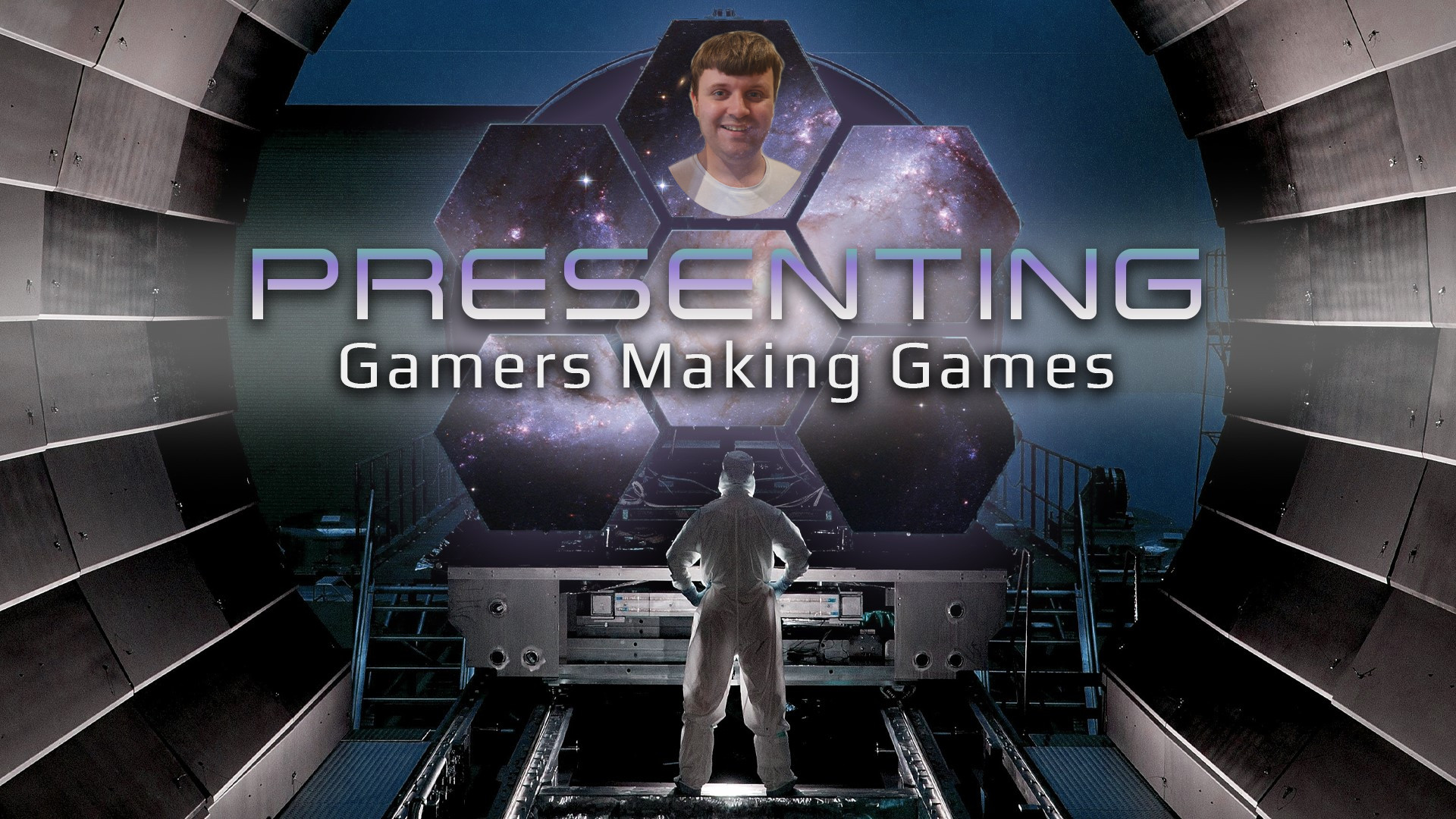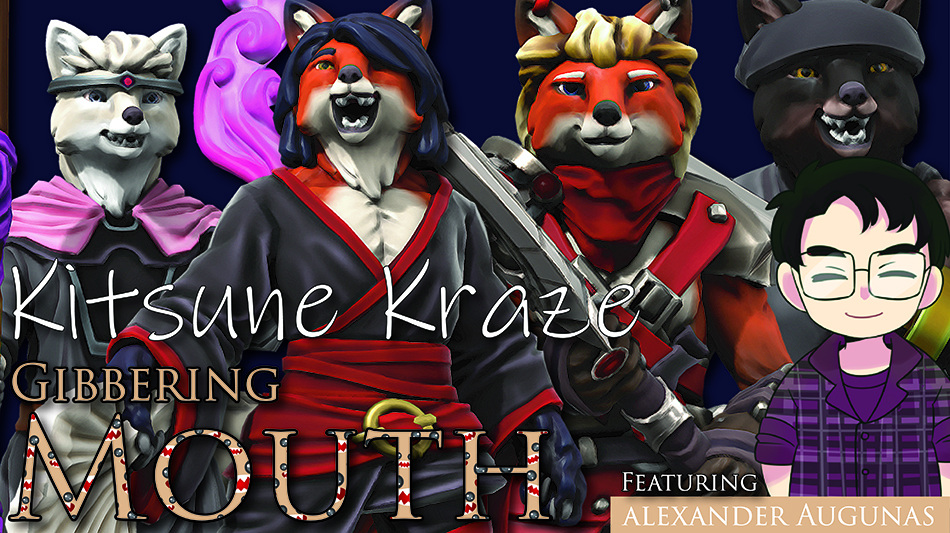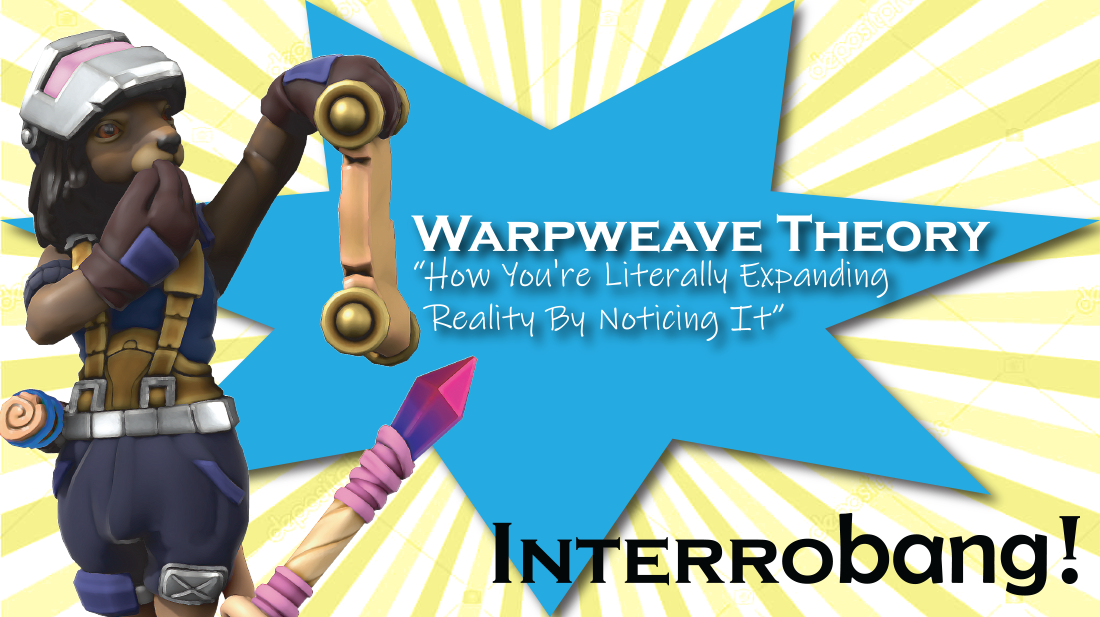Hello, everyone, and welcome to Guidance! I’m Alexander Augunas, the Everyman Gamer, and you get not one blog article from me since the end of our Guest Takeover week, but TWO! How cool is that? Pretty darn cool, but not as cool as Discord, if I do say so myself. Most modern gamers will know of Discord; it’s an online community platform that you can use like a real-time forum that also includes voice channels for verbal communication. Discord was super popular before the COVID-19 pandemic, but its only managed to cement itself further in the hearts and minds of gamers as it’s become increasingly difficult to justify meeting in-person due to outbreak concerns. For me, however, it’s also an essential pillar of the Starfinder RPG campaign I’m currently running: Teenaged Wasteland!
Now, my need for Discord likely isn’t the same as everyone’s need for Discord. As I mentioned in my blog last week, I invited a whole bunch of friends who have varying levels of experience with Tabletop RPGs to this campaign. Almost everyone has played at least D&D 5E or Pathfinder 1E before, but no one has played Starfinder significantly. The most experience anyone at my table has with Starfinder is the Know Direction Network’s own Dustin Knight, who ran a 8 slots of a 1st-level adventure at GenCon 2017, and while that displays an understanding of the basics of Starfinder, 3 years and a lack of getting to see many custom characters in play definitely means that Dustin isn’t exactly a powerhouse rules lawyer at my table!
No, the one thing my crew DOES have in common is the fact that none of us live near each other. Dustin and one of my players live on opposite ends of Seattle, but that’s about as close as it comes. I live in Philadelphia, one of our players lives in California, another in Boston, one in Texas, one in South Carolina, and one in New Orleans. We’re literally all over the place! And as a result, getting together around a table was never an option for us, pandemic notwithstanding. That made having a place where the campaign could live the upmost importance, so with that in mind I designed a Discord home for us!
The Nesting List
When you’re designing a Discord Server, the “Nesting List” is sort of like how the different channels is organized. Discord is split into categories that you can assign channels into; both text channels and voice channels. Here’s a brief rundown of how I set-up my server.
Campaign Info Category
This is basically my section for information about the game. Most of the channels in this category are locked so that everyone can see them and react to them, but no one but the GM (that’s me) can post there. The idea is that this is a place where I give official information.
- Introduction: This is basically a welcome page that also gives some very basic instructions about how to proceed with things like character building.
- House Rules: This section has a HUGE list of special house rules that I incorporated for Teenaged Wasteland. Some of it was product access, other parts of it was a unique “perks” system that was based on Perram’s Special Snowflake Cards for PF1.
- Setting Lore: This channel has some basic setting information about the Blood Space Campaign Setting, by Everybody Games and Rogue Genius Games. It also has some specific information about the Imperial War College, the school where my campaign is taking place.
- Downtime: This channel has link to the Downtime Rules from Character Operations Manual (as hosted by the Archives of Nethys) as well as some modifications to how downtime works in order to keep it in spirit with the setting—a high school. I also wrote up some examples of how the downtime system works in practice.
- Classes: This channel basically just listed the academic classes that the PCs could take. Teenaged Wasteland has five mandatory classes (Language Arts, Math, Science, PE, and Social Studies), and each PC gets to pick three electives they can participate in. I used my Adventurer’s Academy rules (which was published as part of Rogue Genius Games’s Starfinder 52-in-52 product line) as the basis for these rules.
- Starfinder Products: This channel has helpful links to all the major Starfinder products; specifically, links to their product pages at Paizo. I am nothing if not an enabler.
- Starship Combat: This section has links to all the starship roles and their major crew actions for Starship Combat, as well as general rules for how to engage in Starship Combat. In my opinion, this gameplay mode is the most difficult part of playing Starfinder.
Teenaged Wasteland Category
This category is essentially the major directory for everything involving the Teenaged Wasteland campaign. It’s set so you need a special permission (the Teenaged Wasteland role) in order to view or post in these channels. I can also type @Teenaged Wasteland to message everyone with that role on my server simultaneously, which is really helpful for scheduling new sessions!
- General: This channel is my general chat, meaning the players can talk about whatever we want here. I commonly use this chat to schedule my next sessions by using @Teenaged Wasteland, combined with emojis for quick voting. We also tend to talk Out-of-Character in General Chat as stuff is happening in the In-Character channels.
- GM Notes: Originally, this was a secret channel that only I could see that I used to use this channel to write notes about what happened during the games, but it ultimately proved REALLY ineffective because of how much out-of-session RP my players do. Instead, I took all the notes out from here and used Microsoft OneNote to make a massive OneNotebook that I used to store all my campaign setting lore. MUCH easier to navigate!
- Pop Culture: One of my most popular Everybody Games product lines is the Pop Culture Catalog, and I love doing tie-ins when I can. As a result, I’ll commonly post little snippets of Pop Culture here that the players can reference; popular movies, holovids, sports teams, that sort of thing. This channel is locked so anyone can see it but only I can post in it.
- RP Rolling: This channel has a dice-rolling bot programmed into it that my players can use to roll dice when they’re roleplaying during in-character text RPs. I use Dice Maiden for this.
- Sidestories: One of my players LOVES gathering everyone’s RPs into text documents and posting them to share, so I made her a sidestories channel to post them. However, I’m thinking about removing this channel and switching to, like, a G-Suite or something else; a bitter online repository for stories, as the channel basically requires you to upload a word file and download it whenever you want to read it. Not super great, but adapting any technology takes time and innovation!
- Voice Channels: Currently I have four voice channels; a General channel that we use when actually playing the game, and three “Team” channels that I use when I need to split the party. Because I’m diabolical. I can simply click and drag my players into different voice channels and BOOM! I’ve prevented them from speaking to each other. One of my favorite tactics with online roleplaying is this idea that I can unevenly distribute information between players using all these tools that I have, and splitting the party when it makes sense is one of the best ways I can do this.
Player Categories
In my eternal benevolence, I’ve given each of my players their own category in the Teenaged Wasteland discord. Each of them has complete control over their category; they can add new channels, edit and upload whatever they want, and so on. The catch? The players can’t see each others’ categories. (Though as the GM and admin, I SEE EVERYTHIG.) This is another way that I enact that idea of uneven distribution of information between my party members, which you’ll see more clearly momentarily.
- Private General:
- Downtime Tracker: This section has all the info my players need to conduct their downtime and reminders of the different days of the week in the Blood Space Campaign Setting. More than this, however, its where my players plan their characters’ weekly downtime routines and post them for me to see. I take the information from those routines and play it into my spreadsheet to determine their grades for the grade boo kchannel.
- Dice Rolls: This channel is exactly like RP rolling, but for private dice rolls pertaining only to the player for whom the category belongs. My players commonly use it to roll dice in secret from each other as well as to make their downtime rules, since those take a LOT of rolling.
- Secret Messages to the GM: This channel is designed as the proverbial, “Pass the GM a Note” but in Discord form. Basically, if my players want to ask me anything in secret, they can do so here.
- Grade Book: Part of the players’ downtime has them attempting checks to maintain or boost their grades, which I track using a rad spreadsheet that I designed. Each in-game week I take a snapshot of each character’s grades and post them in the Grade Book channel.
- Personal Comm Unit: This channel is 100% dedicated to phones. Specifically, if my players want to text / have phone conversations with NPCs, they do so here. The joys of playing Starfinder!
- In-Character Diary: This is pretty self-explanatory. This section lets my players write a diary if they want to. Currently only Dustin really uses it!
- RP Events: This channel is for any in-person RPs that my players want to engage in. Do they want to meet a favorite NPC for coffee? Go shopping? Do anything else that doesn’t require another PC? They RP it out here, then I take the RP and copy it into my Microsoft OneNotebook for quick viewing AND add the event to my official Teenaged Wasteland calendar of events. (A must when you have as much downtime RP as Teenaged Wasteland does!) “But Alex,” you say, “What if your players want to RP with EACH OTHER?” Excellent question, strawman audience! I will now answer that question.
Group RP Category
The final category in my Discord (besides an off-topic category for memes and art, of course) is the Group RP category, which features numerous channels that are each named for a specific groupings of PCs. I have these categories alphabetized by first name, so if one character’s name is Yoko and the other is named Coren, then the channel would be Coren-Yoko. These channels are set so that only the characters who are named by that channel can view or post in them, so Coren-Yoko is only accessible by the characters Coren and Yoko; no other PC can see it. In addition to having one category for each PC combination, I also have a Boys-Dorm channel, where all the boys can talk together as though they were in their dorm, a Girls-Dorm category (same idea, but for the girls), and an Everybody category, which is a channel for everybody! I’ve also made it clear that my players can request more specialized channels based on their need, but I wasn’t going to sit down and do every channel combination larger than 2 people if it wasn’t needed! THAT WOULD TAKE FOREVER!
Discord Roleplaying
So, what do my players primarily use the Discord for? Roleplaying out of session. I have a general policy that as long as the RP happens on the Discord it can be canon, and I draw plot points from the RPs ALL the time for my actual in-person adventures. This style of RP is super important to my slice-of-life style of storytelling for Teenaged Wasteland, as a ton of the stuff that my players are roleplaying are things that would be REALLY boring if I made them all sit in front of a virtual tabletop talking about it. Discord RP-by-post lets them roleplay at their own pace in canon time slots that fit the story’s calendar.
Of course, I strongly enforce the idea that the players can’t RP when it’s inappropriate to do so. For example, right now my players are in a spooky, haunted asteroid base so their RP has to center around the events that are happening. Essentially, they’re allowed to roleplay whatever and whenever they want between the in-game dates that each in-person session takes place in, but once a session happens they’re no rewinding before it happened. So right now the seven of them are RPing their reaction to having fought a small host of undead, and it is GLORIOUS. Tons of drama, blaming, and in-fighting that will 100% carry over to the next in-person session. Drama that is perfect for a game featuring a party of teenagers, but would have felt like it was slowing down the pacing of the in-session adventure if it happened while we were all at th etable.
And that’s sort of the big advantage of Discord roleplaying; if you give your players the space to breathe and really enjoy the events that transpire, and put the work in to make those events happen, they help your players develop their characters into actual, breathing people while giving every other PC a chance to see that PC as a person. I can’t tell you how many times I wrote a character background and motivation that I loved, only to have an adventure where no one ever really got to interact with that character’s backstory because of a misconceived notion that “combat is the means that drives the story forward, so if we’re not in combat or rolling dice in some way the story is stalled.” Using Discord to give my players a bit of slice of life has been EXACTLY what they needed to get the opportunity to explore their characters as people and to show each other the people their characters are.
Looking Forward
Teenaged Wasteland is a huge part of my engagement with Tabletop RPGs right now, so I’m planning for a ton of my future content to focus around the campaign. I really want to talk about my interviewing of the players and how I’ve used what I’ve learned to build cohesion in story and theme around them, and I also want to talk about how I portray NPCs in my campaign. I also want to share some of my tricks for impromptu GM storytelling, which is actually pretty easy because so much of my slice-of-life stuff is written down as, like, notes. So I can give EXAMPLES! Hooray! Plenty of things to talk about, and we’ll explore together next time, on Guidance!


